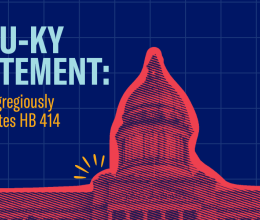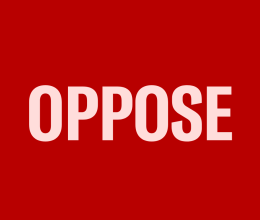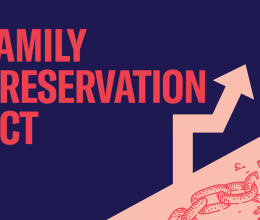
Across the country, politicians are using every trick in the book in their attempts to ban abortion and force people to stay pregnant against their will — and they’re trying to recruit the Supreme Court to help them. On Tuesday, Ocotber 12, 2021, the Supreme Court heard oral arguments in a case — brought by EMW Women’s Surgical Center, which is represented by the ACLU and ACLU of Kentucky — about one of those attempts: Kentucky Attorney General Daniel Cameron’s last-minute effort to intervene in a case challenging a Kentucky abortion ban already declared unconstitutional by two courts.
The specific question before the court is a narrow, procedural one, but if the court rules for Cameron, it will open the door for him to put this unconstitutional ban into effect. As the court prepares to hear our case, here’s what to know.
This isn’t just about Kentucky.
The Kentucky law at issue in the Supreme Court case cannot be viewed in isolation. This year, politicians passed a record number of laws restricting and banning abortion — more than 100 this year alone.
The stakes are high going into this Supreme Court term.
In September, five justices turned their backs on the Constitution by allowing Texas’ radical new abortion ban, S.B. 8, to go into effect. The court effectively stripped Texans of their constitutional right to abortion in the dead of night. With a direct challenge to Roe v. Wade set to be heard this term by the court, the reproductive freedom of people across the country is on the line.
State legislatures across the country have been undermining Roe since 1973.
Since Roe was decided in 1973, state legislatures have been chipping away at abortion access, passing more than 1,300 restrictions that aim to force people to remain pregnant. Though many have been blocked by courts, too many have gone into effect and created unnecessary barriers to abortion, including laws that prevent people from using their insurance to pay for an abortion, that force people to make unnecessary trips to the clinic, and that force clinics to shut down. All of these laws push abortion further and further out of reach and as a result even today the right to have an abortion is a right in name only for too many people.
Before Cameron’s attempt to intervene, multiple lower courts had already ruled Kentucky’s ban was unconstitutional.
After we challenged the ban on behalf of EMW Women’s Surgical Center in 2018, the attorney general decided not to defend the law and got out of the case. The case went forward against other officials from the state, and after the trial, the court ruled in our favor and declared the law unconstitutional. And when that decision was appealed, the Sixth Circuit affirmed that was correct and that the law violated Kentuckians’ constitutional rights. It was only at the eleventh hour, after the appeals court issued its decision, that the attorney general came back and asked for another bite at the apple. But the court ruled that he was too late.
People in Kentucky already face a slew of barriers to abortion care. The last thing they need is another ban.
The law in question in this case bans a specific abortion procedure that has been standard medical practice for decades. If the abortion ban goes into effect, it would essentially ban abortion after 15 weeks of pregnancy in Kentucky. Other restrictions in the state include:
- Requiring patients to have a face-to-face consultation with a doctor at least 24 hours before an abortion;
- Forcing patients under 18 to get permission from a parent or judge in order to have an abortion;
- Requiring doctors to provide an ultrasound, narrate fetal development, and make the heart tones audible regardless of whether the patient wants to hear it;
- Prohibiting private insurance from covering abortion in most circumstances, and completely for public employees; and
- Prohibiting the use of telemedicine to prescribe medication abortion pills, even during a pandemic.
Due to laws like these, abortion access in Kentucky has been decimated — only two providers remain, essentially forcing pregnancy on many individuals who can’t otherwise get care. And only one provider, EMW Women’s Surgical Center (the plaintiff in the case), provides abortion beyond the earliest stages of pregnancy. Kentucky politicians have done everything they can to push the procedure out of reach in the commonwealth, including passing a six-week ban that was ultimately blocked in the lawsuit brought by the ACLU on behalf of EMW. This case is yet another effort to push an extreme agenda.
These laws disproportionately harm people of color and low-income communities.
Because of systemic racism and structural inequality in our country’s healthcare system, abortion restrictions fall hardest on people of color, low-income people, youth, immigrants, LGBTQ people, people in rural areas, and other marginalized communities. Preventing people from obtaining the abortion care they need and forcing them to carry pregnancies against their wishes poses an increased risk to their very lives, especially for Black women, due to the disproportionate impacts of the maternal mortality crisis.
It’s not enough to defeat the bans. We must ensure that people can actually get the care they need.
Too many people live in places where Roe has been rendered meaningless by anti-abortion restrictions designed to harass, guilt, and shame patients out of seeking abortion care, or block the care entirely. Many of these restrictions don’t ban abortion outright but chip away at access by forcing patients to delay care, shutting down clinics, and making abortion unaffordable for low-income communities.
Congress could prevent this. Before it now is a bill that would protect the constitutional abortion rights of all people, no matter where they live. The Women’s Health Protection Act (WHPA) would provide a nationwide safeguard against abortion bans and medically unnecessary restrictions that push abortion care out of reach. The House has already passed the WHPA, and now it’s the Senate’s turn. Send a message to your Senator today.



